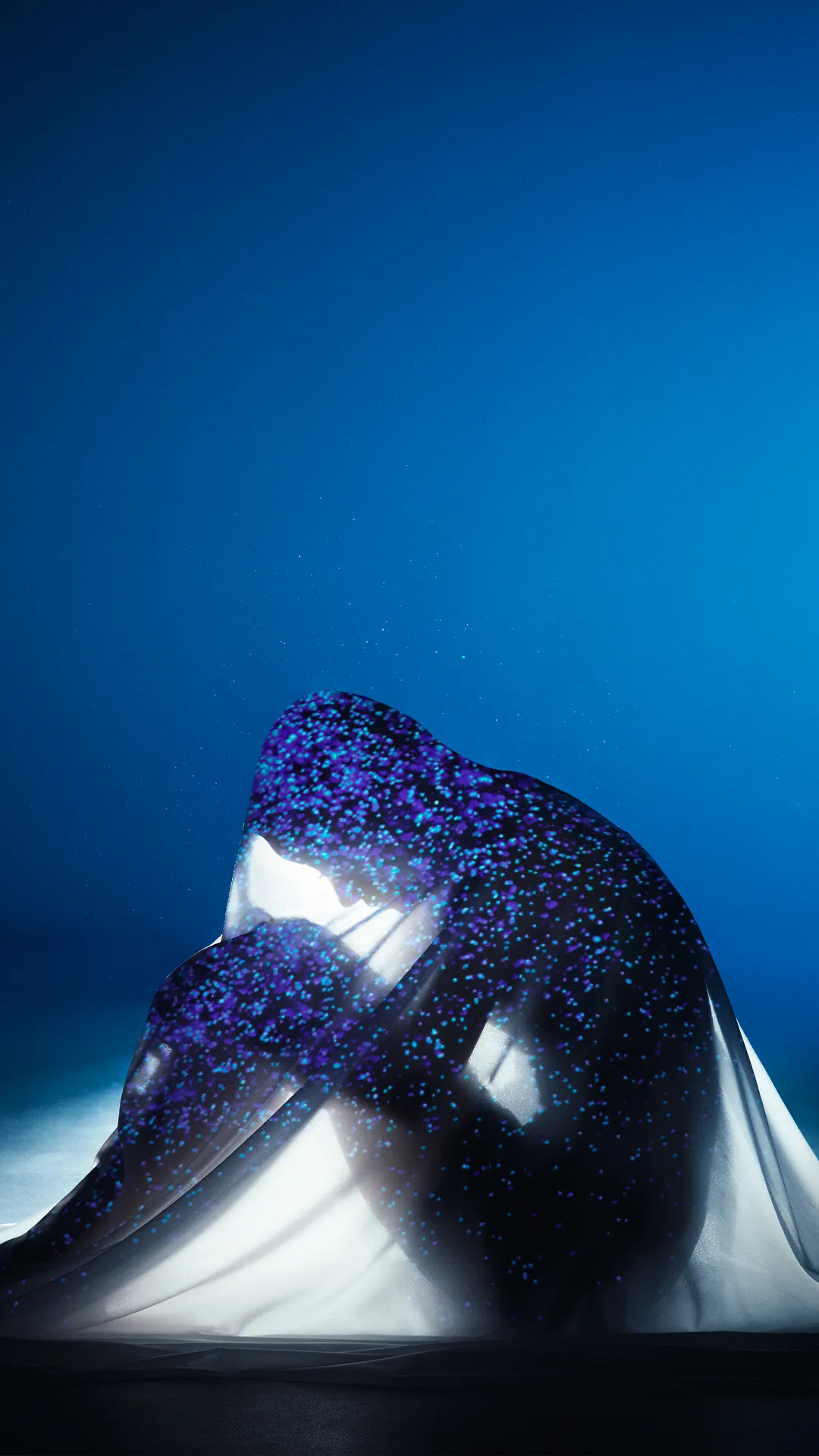INDEX
The Learning Process (and the Struggles) with Yusuke Koide
Considering the theme, what was your interaction like with Koide-san when creating the song?
Kaika: I wasn’t present for the recording, but Koide-san invited an incredibly talented group of people*. I think the recording took place in the same space, and it felt like the emotion was transformed into sound. I was really moved by that. Also, for this song, I played the backing guitar myself, but it probably took longer than any other recording I’ve done so far (laughs).
* Kenjtaro Nakao, Motifo Kida (tricot), Takeshi Takahashi (Frederic)
Did Koide suggest that you play the guitar?
Kaika: Yes, he suggested it, and I borrowed his guitar. I had learned chords in a way where I memorized shapes, like “if my fingers are in this position, it makes this sound,” but Koide-san, being a guitarist, can freely choose any sound from the fretboard depending on where he presses. I was really impressed to see that in action (laughs). Also, regarding my singing, with KAF, I’ve usually done recordings where it’s just me and the engineer, working until I’m satisfied. But when I played my take for Koide-san, he asked me, “Can you try singing at about 30% effort?”
So, he wanted you to sing more relaxed.
Kaika: With KAF, I’ve always been the one in charge of the singing, and the people who listen to my songs value the emotion I put into it, so I always give it my all. But when Koide-san told me that singing with all my emotions could tire people out, it made sense to me. It was an opportunity to reflect on my established way of singing. For example, there’s a line in the song, “The laundry swayed, and as I stared at the rooftop, I smelled dinner from somewhere,” and at first, I sang it exactly how I wanted. But Koide-san said, “This sounds like the smell of curry. I’d like the listener to imagine what the dinner is.”
That’s an interesting perspective.
Kaika: But there was one take that Koide-san liked, and I couldn’t quite accept it. It felt like a battle [laughs]. In the end, I got to go with the take that I preferred, but the whole “try singing at 30% effort” thing was something I would never have done on my own, and I ended up really liking that way of singing. It was a big discovery for me. It was a great experience.
“Tokyo, Bokura wa Daijoubu Kana” has anxiety and impatience as its background, but the impulsive, upbeat band sound adds a great contrast to it. The combination works really well.
Kaika: Exactly, that’s it. The sound is so cool. I’ve listened to a lot of bands, but what I love about songs like this is how they express that impulse through not just the voice and the singing, but through all the sounds that are playing. I really feel that “Tokyo, Bokura wa Daijoubu Kana” became one of those songs thanks to Koide-san’s influence.
On the other hand, “Hakai no Uta” uses shocking phrases like “time bomb, me,” but the song’s style is more lo-fi hip hop, a bit chill. There’s an interesting contrast between the tone of the song and those words.
Kaika: That’s true. I might have separate ideas in my mind for “this kind of melody” and “these kinds of lyrics.”
Regarding “Hakai no Uta,” I’m really bad at getting angry… but during that time, I was constantly angry. However, no one was to blame, so I didn’t know who to direct it at. I felt isolated, and even when I was on the train, I’d suddenly start crying or think, “Everything should just be destroyed.” But those feelings of destructive impulses that I couldn’t express to anyone usually fade away after a good night’s sleep. There’s a lyric that goes, “By tomorrow, everything will be back to normal.” For me, it was like how even if Ultraman’s enemies destroy a city, the next week everything is back to how it was. That’s the kind of image I had while writing the song.
In terms of expressing things you can’t say directly, maybe the essence hasn’t changed since “Higurashi no Uta.”
Kaika: Yes, I think so. “Higurashi no Uta” was a song I made a little while ago, and at that time, I had drawn a line in my mind between myself and the adults around me, and I think I often relied on that position. Because of that, I didn’t know how to relate to others, but after moving to Tokyo, I feel like I’ve grown a little, and over the past year or two, I’ve finally become able to say what I want to say.
And you also had a battle with Koide-san (laughs). Also, “Terminal” is a song that’s been performed since your first live show, and I’m sure many people were waiting for its official release.
Kaika: “Terminal” was a song that came about when I was feeling really suffocated after seeing things on social media. There were people who had passed away due to cyberbullying, but after a little while, everyone forgets, and everything just moves on. I felt a strong sense of discomfort about that. There’s always one news story, and once it’s over, it’s onto the next, and then the next. I wondered, “Where does everyone want to go?” and that became the theme of the song.
It’s wonderful how those introspective feelings are transformed into an emotional yet beautiful song.
Kaika: I’m really happy that many people say they love “Terminal.”
























